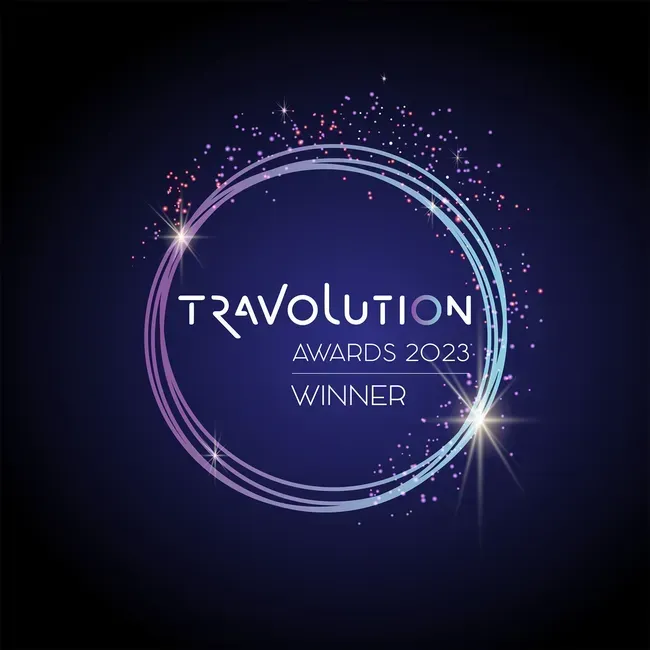The Role Of Data In Travel Marketing - Insights For The Modern Explorer
There's a wealth of information at your fingertips that can enhance your travel experiences through data-driven marketing strategies. In the modern age, your preferences and behaviours serve as valuable insights for travel brands aiming to cater to your specific desires. By understanding how data shapes travel marketing, you can better navigate choices that resonate with your interests, ultimately leading to more enriching journeys. In this post, we'll explore how data influences the travel industry and how you can harness this knowledge for your next adventure.

The Importance of Data in Travel Marketing
The importance of data in travel marketing cannot be overstated. It serves as the foundation for understanding market trends, refining strategies, and ultimately enhancing the customer experience. With data-driven insights, you can effectively target your audience, measure campaign success, and allocate resources wisely, ensuring your marketing efforts resonate with travellers seeking unique experiences.
Understanding Customer Behaviour
Above all, understanding customer behaviour is vital for your marketing strategy. By analysing data on demographics, preferences, and past travel habits, you can gain valuable insights into what drives your audience's decisions. This knowledge enables you to tailor your offerings to meet their needs, increasing engagement and loyalty.
Personalisation in Marketing Campaigns
By leveraging data effectively, you can create personalised marketing campaigns that directly appeal to each traveller's unique preferences. Personalisation enhances customer engagement and improves conversion rates by providing relevant offers tailored to individual interests and behaviours.
Hence, incorporating data into your marketing campaigns allows for a level of personalisation that makes your audience feel valued. With targeted messaging and relevant content, you can make recommendations that resonate with potential travellers, heightening their interest and increasing the likelihood of bookings. Utilising data not only elevates your marketing efforts but also fosters a deeper connection with your audience, ultimately leading to satisfied customers and repeat business.
Data Sources for Travel Marketers
One of the primary advantages of modern travel marketing is the diversity of data sources at your disposal. From social media platforms to booking systems, each source provides unique insights that can help shape your marketing strategies. Utilising these data streams effectively enables you to understand your audience better, tailor your offerings to their preferences, and ultimately enhance customer experiences.
Social Media Insights
Any travel marketer worth their salt understands the power of social media insights. Platforms like Instagram and Facebook offer a wealth of data reflecting traveller preferences, trends, and behaviours. By analysing engagement metrics and audience demographics, you can craft targeted marketing campaigns that resonate with your potential customers, ensuring your messaging reaches the right people at the right time.
Booking and Transactional Data
On the other hand, booking and transactional data provide a solid foundation for understanding consumer behaviour. This data reveals vital information about purchasing patterns, frequently booked destinations, and customer preferences, allowing you to make informed decisions regarding your marketing strategies.
Travel marketers can leverage booking and transactional data to refine their offerings and improve customer experience. By analysing this information, you can identify peak booking times, popular travel packages, and customer demographics, which helps you tailor your marketing efforts. Additionally, monitoring trends in cancellations and alterations can inform your approach to customer service and retention strategies, ultimately driving greater loyalty in your clientele.
Navigating Data Privacy and Ethics
It is important for travel marketers to navigate the complexities of data privacy and ethical considerations. As you embrace data-driven strategies, ensuring that you respect and protect personal information becomes paramount. By prioritising ethical practices, you not only comply with regulations but also foster long-term relationships with your customers, ultimately enhancing their travel experiences.
Compliance with Data Protection Regulations
On your journey to harness the power of data, adhering to data protection regulations such as the GDPR is non-negotiable. This means being transparent about how you collect, use, and store personal data. By understanding and implementing these regulations, you safeguard your brand's reputation while promoting responsible marketing practices.
Building Trust with Consumers
Building trust with your consumers is vital in today’s data-driven landscape. As you collect data to personalise experiences, be open about your practices and show your commitment to protecting their information. This transparency not only enhances customer loyalty but also differentiates your brand in a competitive market.
Considering the growing concerns around data privacy, establishing trust requires consistent communication and adherence to ethical standards. You should actively engage with your audience, informing them about your data practices and the benefits they reap from sharing their information. By creating a culture of transparency and accountability, you not only reassure consumers but also empower them, promoting a positive and lasting relationship with your brand.
Leveraging Data Analytics Tools
Now, with the rapid advancements in technology, leveraging data analytics tools has become necessary for any travel marketing strategy. You can harness these tools to gather insights into customer preferences, predict trends, and tailor your offerings accordingly. By understanding the behaviours and interests of your target audience, you position yourself to create more effective campaigns that resonate with modern explorers.
Tools for Data Collection and Analysis
Against the backdrop of an increasingly data-driven landscape, various tools are available for collecting and analysing data. From Google Analytics to social media insights, utilising these platforms helps you measure engagement, track user behaviour, and assess overall campaign performance. By integrating these tools into your strategy, you gain the ability to refine your marketing efforts continuously.
Predictive Analytics and Future Trends
Unlike traditional methods that rely on historical data alone, predictive analytics employs advanced algorithms to forecast future travel patterns and consumer behaviours. By harnessing the power of big data, you can anticipate shifts in the market and adapt your travel marketing strategies accordingly. As these technologies evolve, your ability to leverage insights will be paramount in staying ahead of the competition.
Forecasting Travel Trends
Any savvy marketer understands the value of identifying emerging trends in travel. By analysing data from various sources, you can gain insight into travellers' preferences and behaviours, ultimately allowing you to tailor your offerings better and enhance customer satisfaction. Embracing these insights enables you to navigate the dynamic travel landscape effectively.
Adapting to Changing Consumer Preferences
Before implementing any marketing strategy, it’s vital to acknowledge how consumer preferences continuously evolve. Keeping your finger on the pulse of these shifts can give you a significant advantage in tailoring your approach to meet the latest needs of your audience.
Predictive analytics allows you to anticipate changes in consumer preferences by analysing patterns in behaviour and feedback. By understanding what drives travellers’ decisions, you can optimise your offerings and messaging, ensuring they resonate with your audience. Tailoring your marketing efforts to their evolving desires not only fosters loyalty but also positions you as a responsive leader in the travel industry.
The Future of Data in Travel Marketing
Despite the rapid evolution of the travel industry, data remains a fundamental pillar of successful marketing strategies. As the landscape shifts, you must adapt to innovative approaches, harnessing insights from customer behaviour and preferences. In doing so, you can enhance your marketing efforts to resonate with modern explorers, ensuring your brand remains relevant and engaging in an increasingly competitive environment.
Emerging Technologies
By embracing emerging technologies such as blockchain, IoT, and advanced analytics, you can gain unprecedented access to traveller data. These innovations enable you to track behaviours, preferences, and trends more accurately, allowing you to tailor your offerings and communications to better meet the needs of your audience.
The Role of Artificial Intelligence
Above all, artificial intelligence has the potential to revolutionise travel marketing by providing advanced insights and automating processes. You can leverage AI-driven tools to analyse vast quantities of data, identify patterns, and enhance customer engagement through personalised experiences.
Another important aspect of AI in travel marketing is its ability to streamline customer interactions. With chatbots and virtual assistants, you can offer instant support, answer queries, and provide recommendations based on user preferences. This not only enhances the customer experience but also optimises your operational efficiency, enabling you to focus on crafting engaging marketing campaigns that resonate with your audience.
Conclusion
Summing up, understanding the role of data in travel marketing empowers you as a modern explorer. It allows you to personalise your travel experiences, ensuring your preferences guide your journeys. By utilising insights derived from data, you can discover tailored recommendations and make informed decisions. For more information on utilising data effectively, take a moment to explore How to Turn Data into Travel Insights (The Case for an .... Embracing data will enhance your travel adventures and keep you ahead in the dynamic world of travel.











We've been helping travel companies enhance their online presence for over 20 years.
Find Us
Green Park Arlington, 5 Exeter Park Road
Bournemouth, BH2 5BD
What3Words Address - ///coins.thing.rinse
Vat Number
GB419155006
Company number - Agendas Group Ltd
12781046
Follow Us.
Quick Links
Resources
More...
All Rights Reserved | Travelgenix is an Agendas Group Company
add a title
Add a link
Add a link
Add a link
add a title
Add a link
Add a link
Add a link
add a title
Place an image or any other element you want
Add a link

